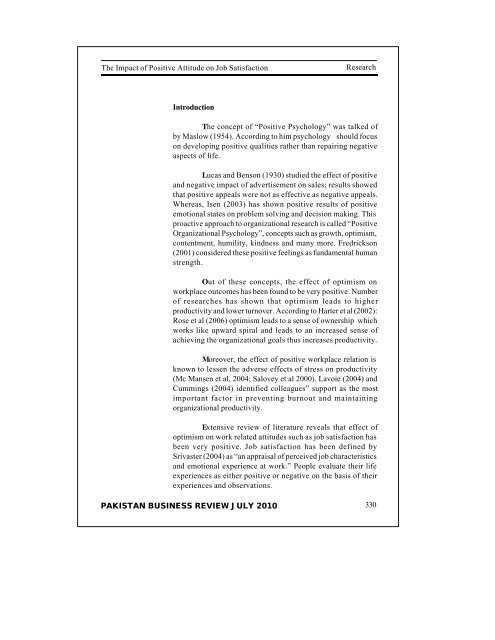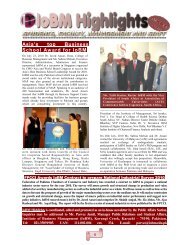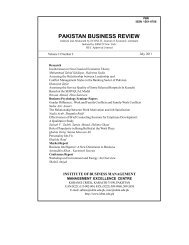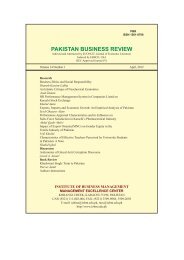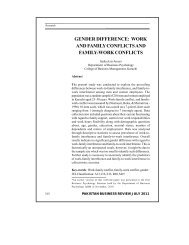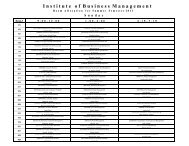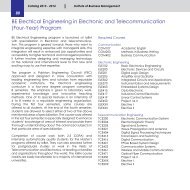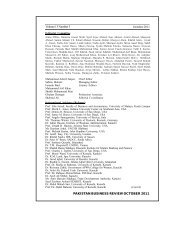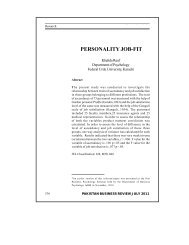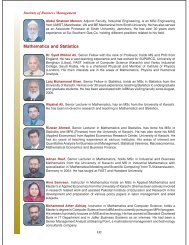Complete Volume - Institute of Business Management
Complete Volume - Institute of Business Management
Complete Volume - Institute of Business Management
Create successful ePaper yourself
Turn your PDF publications into a flip-book with our unique Google optimized e-Paper software.
The Impact <strong>of</strong> Positive Attitude on Job Satisfaction<br />
Research<br />
Introduction<br />
The concept <strong>of</strong> “Positive Psychology” was talked <strong>of</strong><br />
by Maslow (1954). According to him psychology should focus<br />
on developing positive qualities rather than repairing negative<br />
aspects <strong>of</strong> life.<br />
Lucas and Benson (1930) studied the effect <strong>of</strong> positive<br />
and negative impact <strong>of</strong> advertisement on sales; results showed<br />
that positive appeals were not as effective as negative appeals.<br />
Whereas, Isen (2003) has shown positive results <strong>of</strong> positive<br />
emotional states on problem solving and decision making. This<br />
proactive approach to organizational research is called “Positive<br />
Organizational Psychology”, concepts such as growth, optimism,<br />
contentment, humility, kindness and many more. Fredrickson<br />
(2001) considered these positive feelings as fundamental human<br />
strength.<br />
Out <strong>of</strong> these concepts, the effect <strong>of</strong> optimism on<br />
workplace outcomes has been found to be very positive. Number<br />
<strong>of</strong> researches has shown that optimism leads to higher<br />
productivity and lower turnover. According to Harter et al (2002):<br />
Rose et al (2006) optimism leads to a sense <strong>of</strong> ownership which<br />
works like upward spiral and leads to an increased sense <strong>of</strong><br />
achieving the organizational goals thus increases productivity.<br />
Moreover, the effect <strong>of</strong> positive workplace relation is<br />
known to lessen the adverse effects <strong>of</strong> stress on productivity<br />
(Mc Mansen et al, 2004; Salovey et al 2000). Lavoie (2004) and<br />
Cummings (2004) identified colleagues” support as the most<br />
important factor in preventing burnout and maintaining<br />
organizational productivity.<br />
Extensive review <strong>of</strong> literature reveals that effect <strong>of</strong><br />
optimism on work related attitudes such as job satisfaction has<br />
been very positive. Job satisfaction has been defined by<br />
Srivaster (2004) as “an appraisal <strong>of</strong> perceived job characteristics<br />
and emotional experience at work.” People evaluate their life<br />
experiences as either positive or negative on the basis <strong>of</strong> their<br />
experiences and observations.<br />
PAKISTAN BUSINESS REVIEW JULY 2010<br />
330


